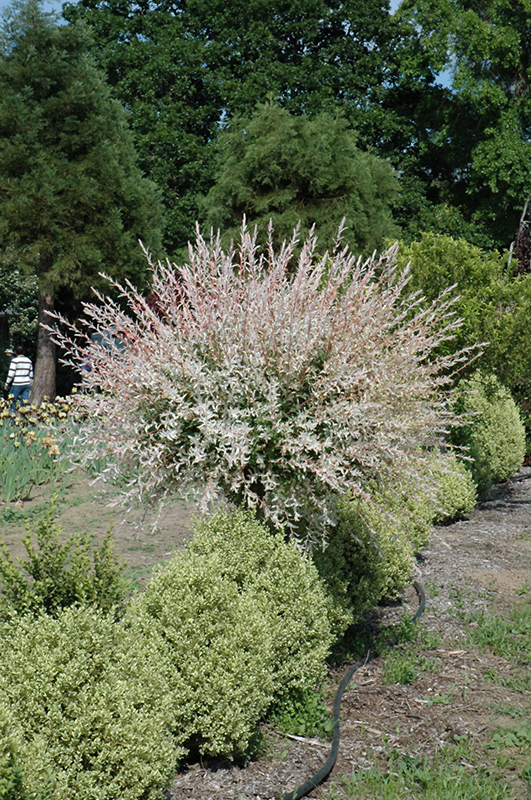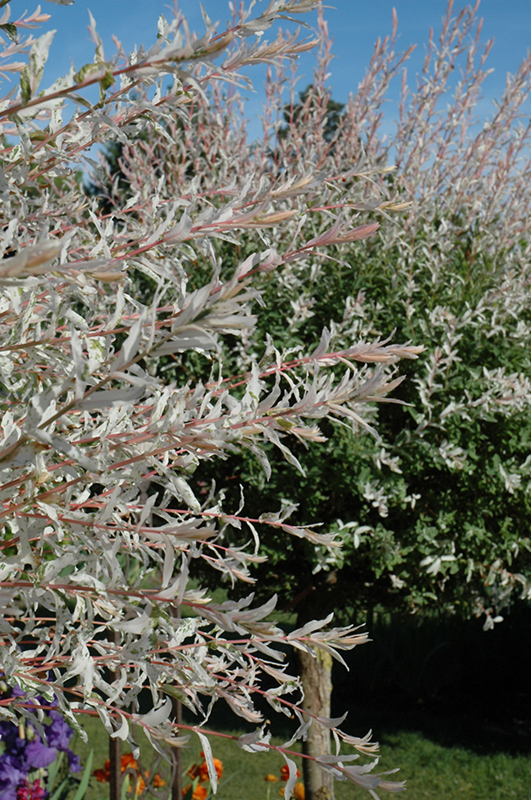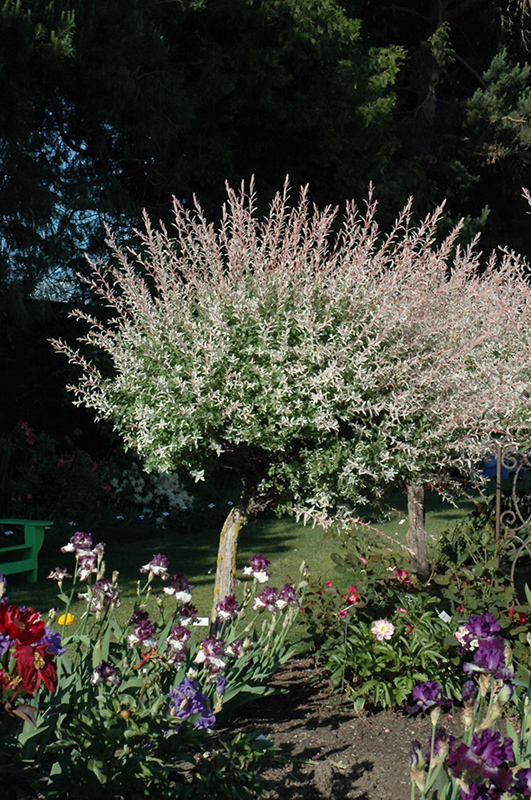Plant Finder
Tricolor Willow (tree form)
Salix integra 'Hakuro Nishiki (tree form)'
Height: 8 feet
Spread: 6 feet
Sunlight:
![]()
Hardiness Zone: 3b
Other Names: S.i. 'Albomaculata', Dappled Willow
Description:
One of the showiest small trees for foliage color, new growth emerges soft pink and white, literally bathing the plant with color in spring, fades to white variegation in summer; should be pruned every winter for maximum effect; tough and adaptable
Ornamental Features
Tricolor Willow (tree form) has attractive white-variegated green foliage with hints of pink which emerges pink in spring on a tree with a distinctive lollipop-like form. The narrow leaves are highly ornamental but do not develop any appreciable fall color. The smooth bark and brick red branches add an interesting dimension to the landscape.
Landscape Attributes
Tricolor Willow (tree form) is a deciduous tree, selected and trained to grow in a small tree-like form with the primary plant grafted high atop a standard. It lends an extremely fine and delicate texture to the landscape composition which can make it a great accent feature on this basis alone.
This tree will require occasional maintenance and upkeep, and is best pruned in late winter once the threat of extreme cold has passed. It has no significant negative characteristics.
Tricolor Willow (tree form) is recommended for the following landscape applications;
- Accent
- General Garden Use
- Container Planting
Planting & Growing
Tricolor Willow (tree form) will grow to be about 8 feet tall at maturity, with a spread of 6 feet. It tends to be a little leggy, with a typical clearance of 4 feet from the ground, and is suitable for planting under power lines. It grows at a fast rate, and under ideal conditions can be expected to live for 40 years or more.
This tree should only be grown in full sunlight. It is quite adaptable, prefering to grow in average to wet conditions, and will even tolerate some standing water. It is not particular as to soil type or pH. It is highly tolerant of urban pollution and will even thrive in inner city environments. This is a selected variety of a species not originally from North America.
Tricolor Willow (tree form) is a fine choice for the yard, but it is also a good selection for planting in outdoor pots and containers. With its upright habit of growth, it is best suited for use as a 'thriller' in the 'spiller-thriller-filler' container combination; plant it near the center of the pot, surrounded by smaller plants and those that spill over the edges. It is even sizeable enough that it can be grown alone in a suitable container. Note that when grown in a container, it may not perform exactly as indicated on the tag - this is to be expected. Also note that when growing plants in outdoor containers and baskets, they may require more frequent waterings than they would in the yard or garden.
This Plant Finder tool is an online catalog representing many of the varieties that we carry over the course of the season, and is intended for informational purposes only. Inventory varies seasonally, so we cannot guarantee that every plant will be in stock at all times - please contact the store for current availability. It does not include our entire inventory of plants, so be sure to visit us to see varieties that may not be represented on this list.



